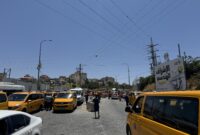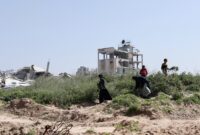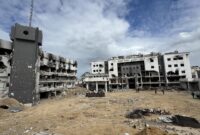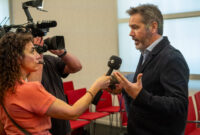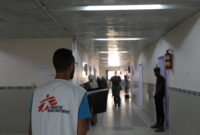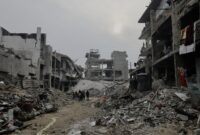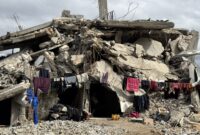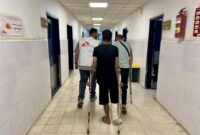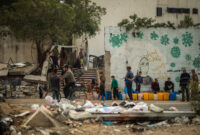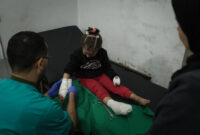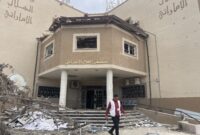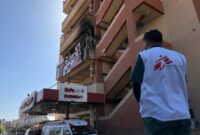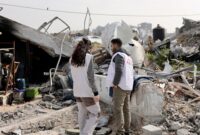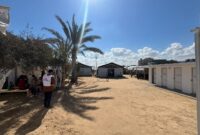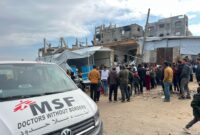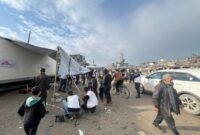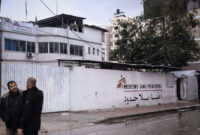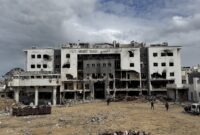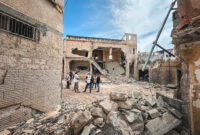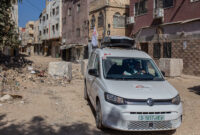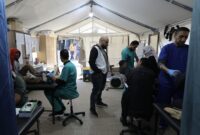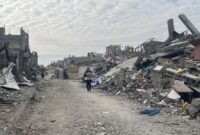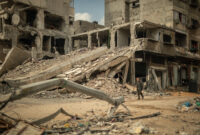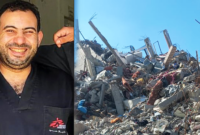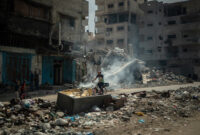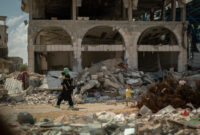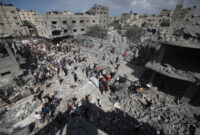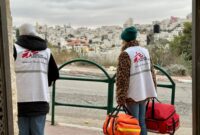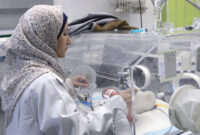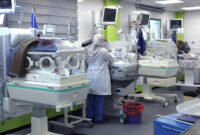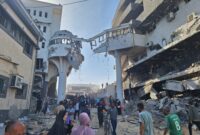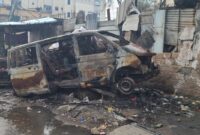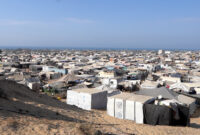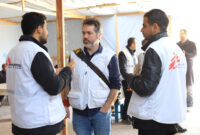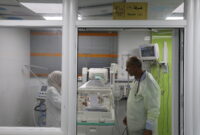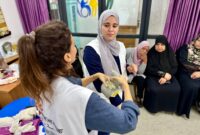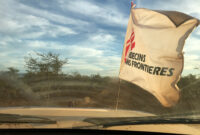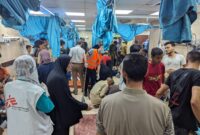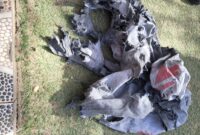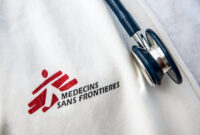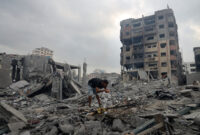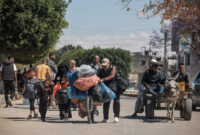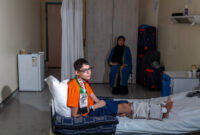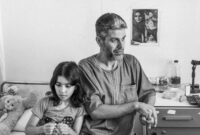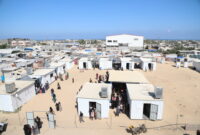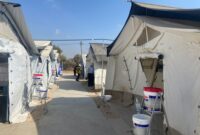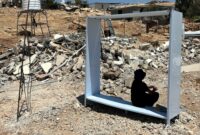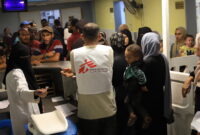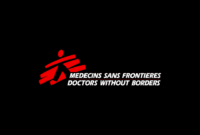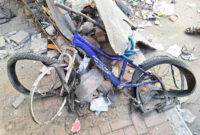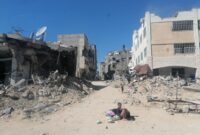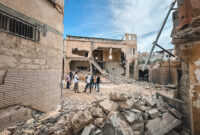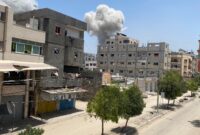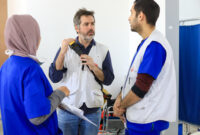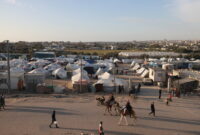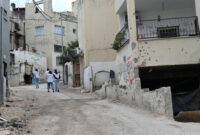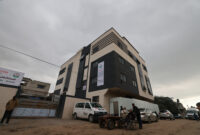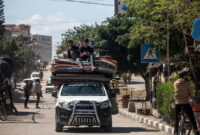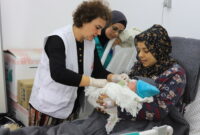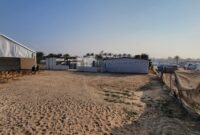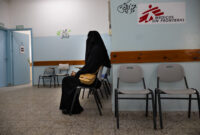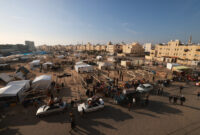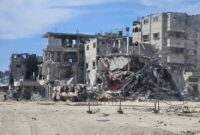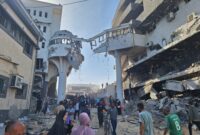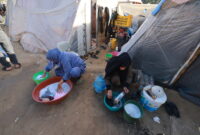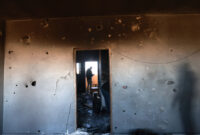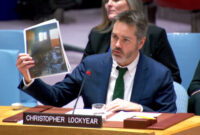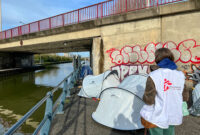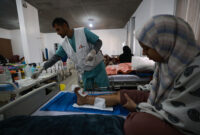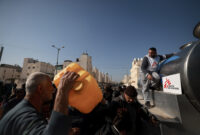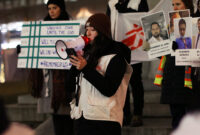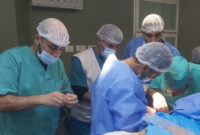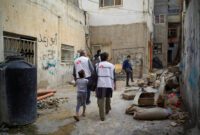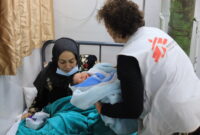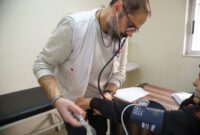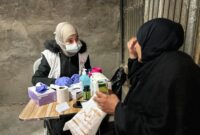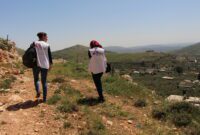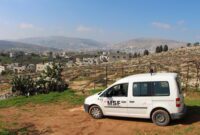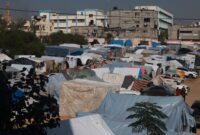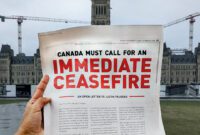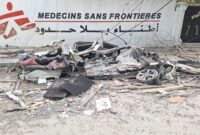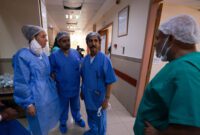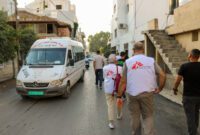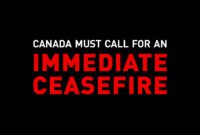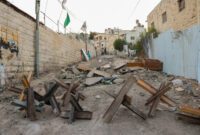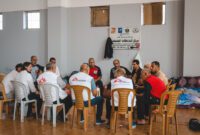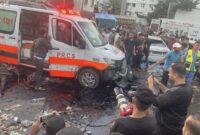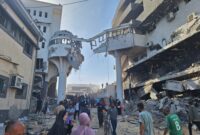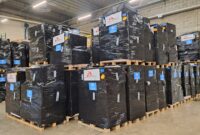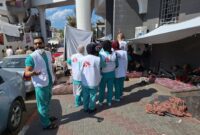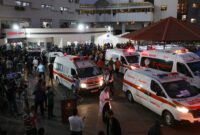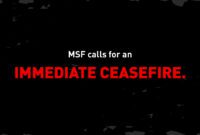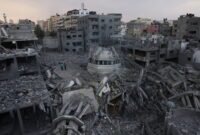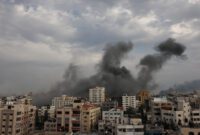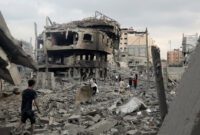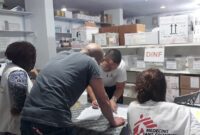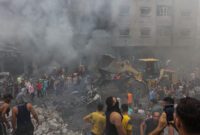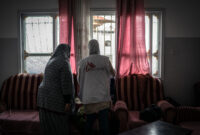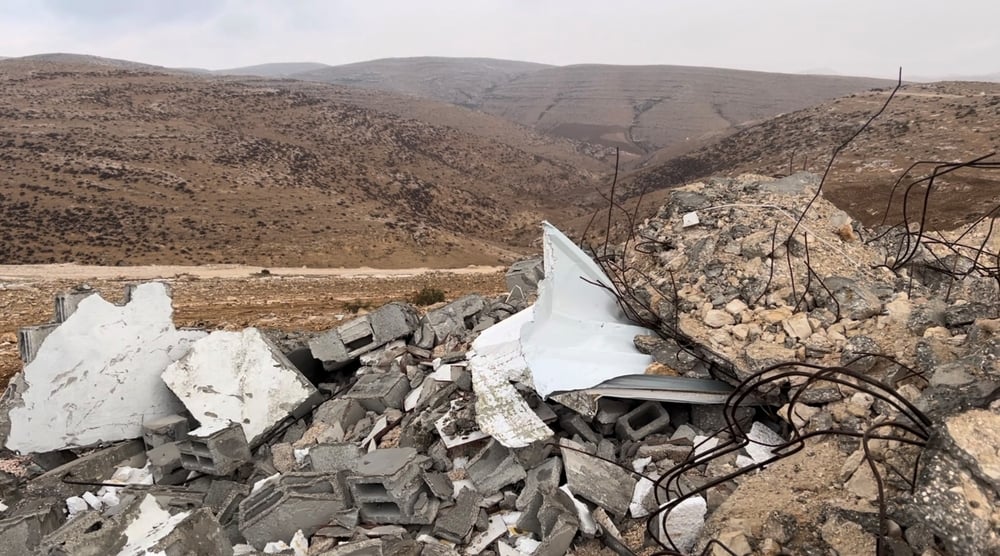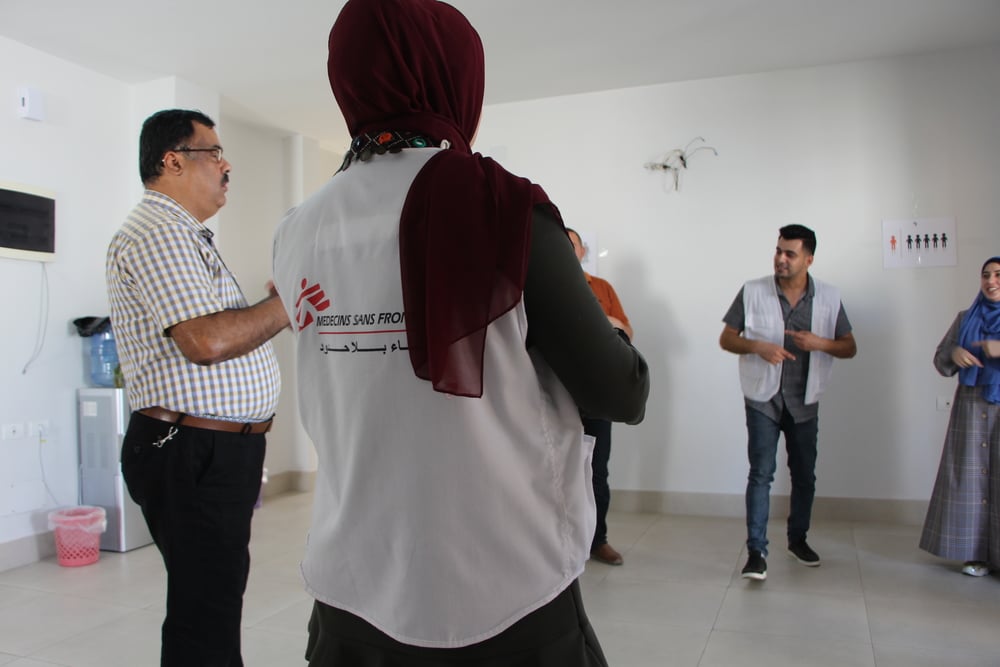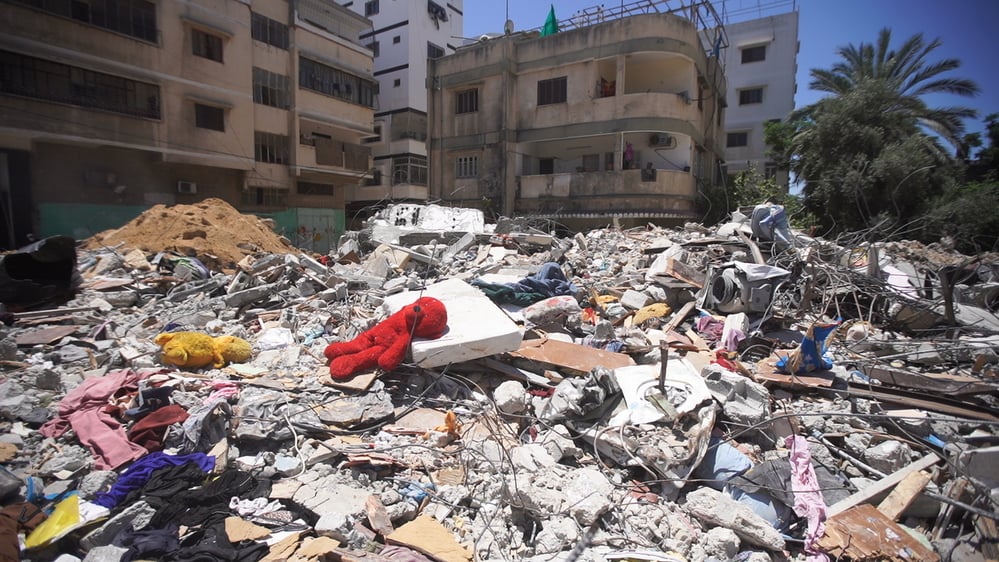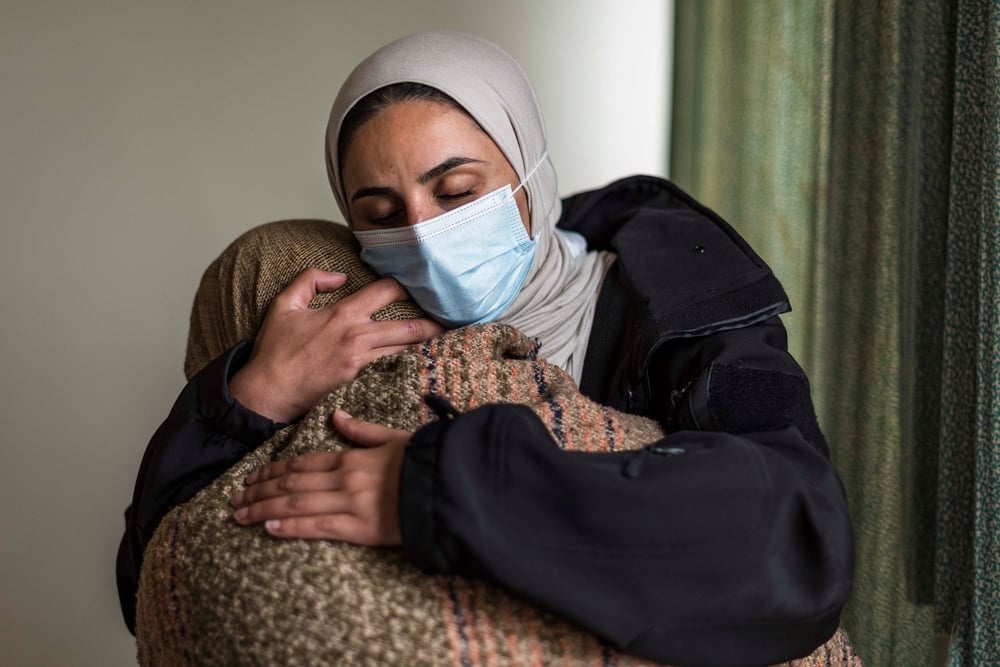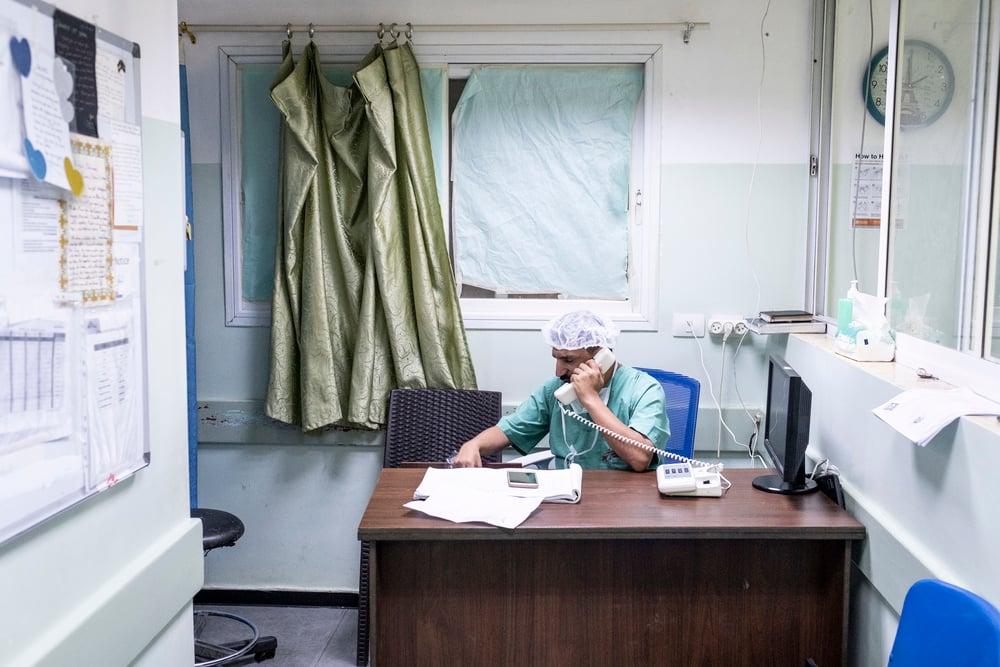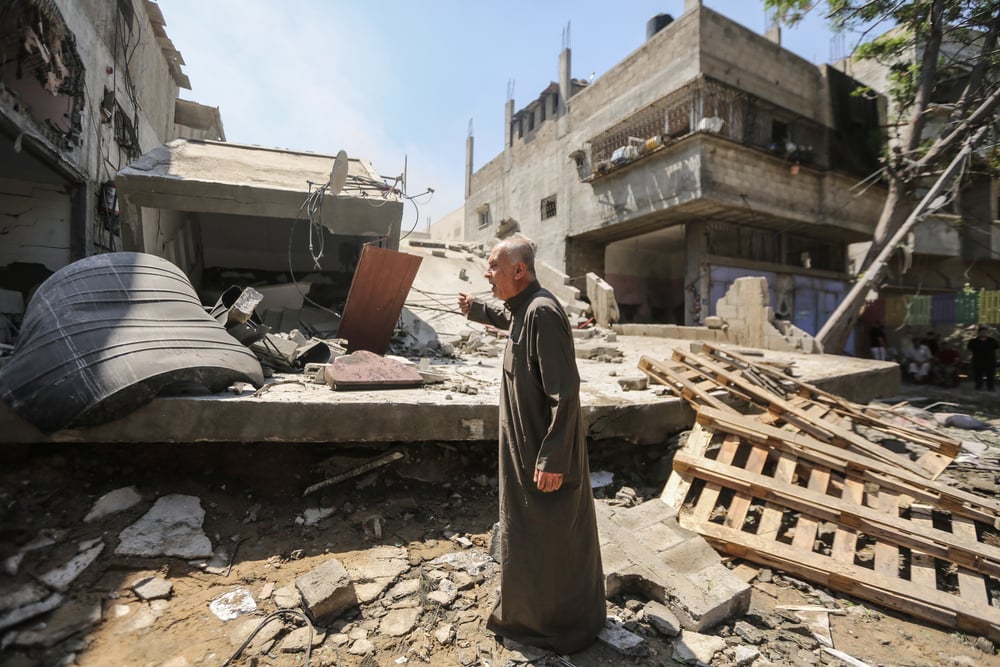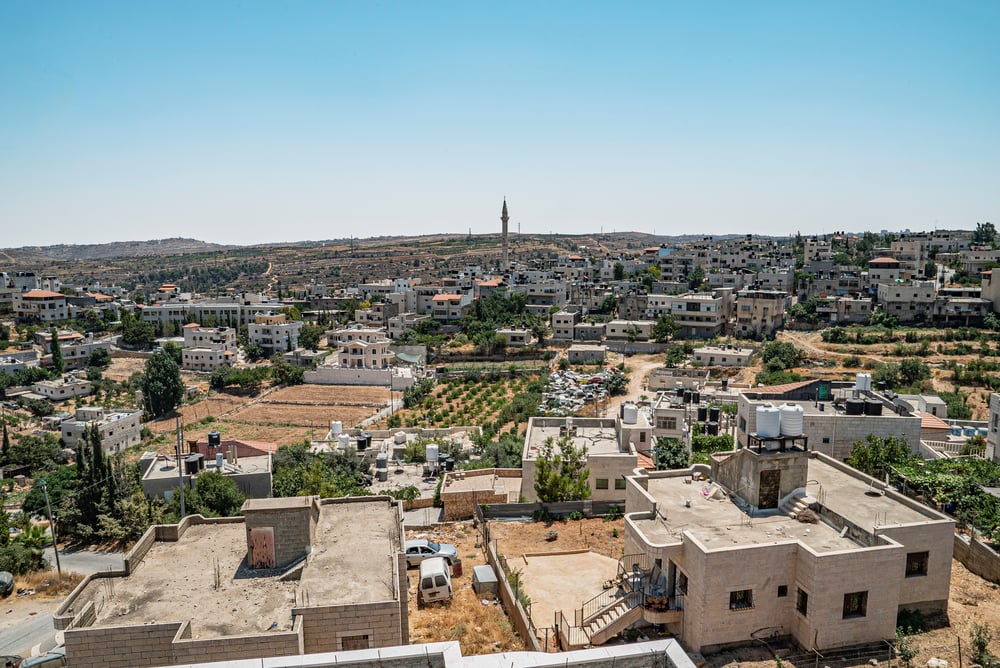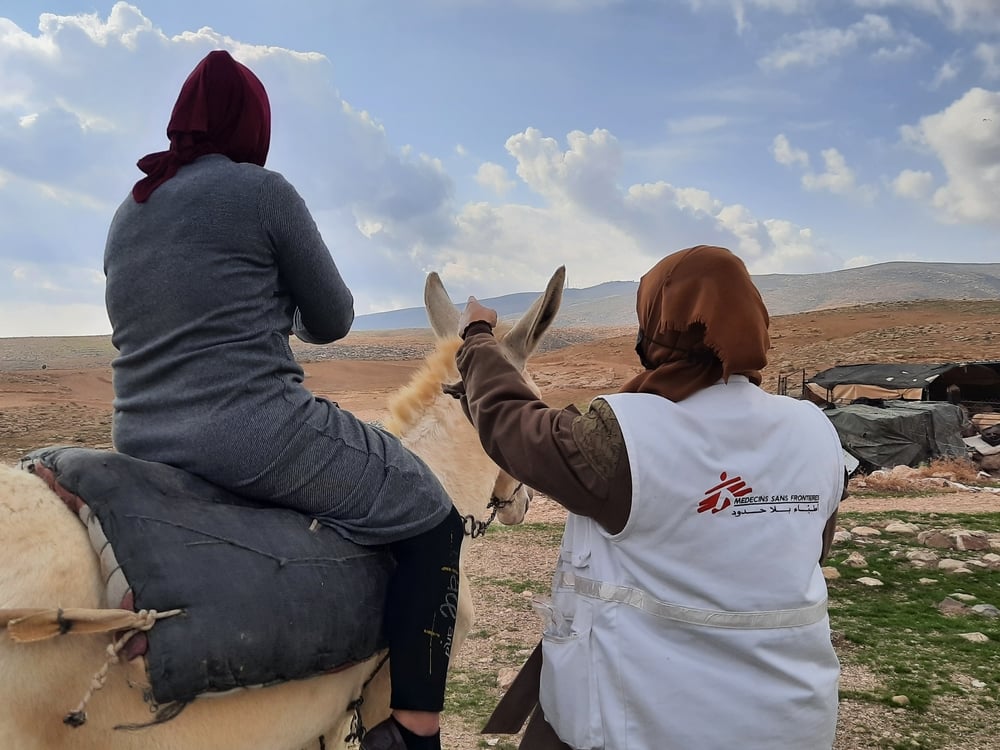Gaza: Trapped by days of unrelenting fighting, thousands of civilians are at risk of dying, including over a hundred MSF staff and their families
Intense unabated fighting and shelling in Gaza city continue to prevent thousands of people from safely leaving the area. Over the past six days, Doctors Without Borders/Médecins Sans Frontières (MSF) has been trying to evacuate some of its staff and their families – 137 people, 65 of them children – currently trapped inside MSF premises located near Al-Shifa hospital. We are urgently calling for a ceasefire which is the only way for corridors to be implemented in order to safely evacuate thousands of civilians, including MSF staff and relatives.
Since last Saturday, MSF staff and families haven’t been able to go outside because of ongoing fighting. On Nov. 14, bullets were fired into the MSF guesthouse, luckily causing no casualties. Yesterday, the office building was hit by shrapnel and the guesthouse’s water tank was shelled. Today, our staff reported high intensity fighting getting very close to them. Thousands of civilians trapped in hospitals and other places in Gaza city currently suffer the same fate and are at risk of dying in the coming days, if not hours.
“Our colleagues hear the constant sounds of gunfire, shelling, and drones. We can hear it when we speak with them on the phone. The evacuation route to southern Gaza remains unsafe,” says Ann Taylor, MSF Country Director in Palestine.
“They are terrified, they ran out of food several days ago and children have now started getting sick from drinking salty water, they must be evacuated now,” added Taylor.
About MSF in Palestine
The information about our response, below, is correct as of Nov. 9, 2023.
MSF activities in Gaza are currently very limited. We have extreme difficulties delivering aid and providing healthcare due to the insecurity and the unpredictability of the bombardments. While some of our colleagues decided to move south following the unacceptable evacuation order of north Gaza, some of our other colleagues have remained in northern Gaza and continue to support in lifesaving activities in Al Shifa Hospital as well in Al Nasser hospital in the south. In Al Awda hospital, a team of seven MSF staff is also working in the MSF inpatient department.
We are also supporting local health authorities with donations from our medical stock. Due to the huge and uninterrupted influx of wounded people since the beginning of the current active conflict, Al Shifa Hospital, the main surgical facility in the Gaza strip, was on the brink of a complete shortage of essential medicines. In response, we recently were finally able to make a large donation of medical stock, including medicines and medical equipment to Al Shifa hospital.
Our staff are working hard on preparing medical and humanitarian supplies to be sent to Gaza when safe access will be guaranteed and open, and we’ll send in emergency teams if and when we’re able to.
MSF is committed to supporting the people affected by the Israeli heavy bombardments and indiscriminate attacks on Gaza. We stand in solidarity with healthcare workers and patients in Gaza. We want to be able to access people in need of medical care and offer lifesaving humanitarian services, but to do this we need basic guarantees of safety.
The West Bank
MSF’s medical and humanitarian activities in the West Bank have been affected by the escalation of violence and the reinforced movement restrictions that have limited people’s access to essential services, including healthcare. To adapt to the situation, MSF medical teams are providing phone consultations for Palestinian residents and displaced people, and referring patients for medical treatment, mental healthcare and social services. MSF mental health teams are also providing psychological first aid, counselling and psychotherapy, mostly remotely. In the West Bank city of Nablus, MSF teams are continuing to provide local people with mental healthcare.
MSF has donated medical supplies, including surgical kits, to Ahli hospital in Hebron, and first aid kits to community focal points in Beit Ummar, Al-Rashaydeh and to the emergency care centre in Um Al-Khair; and provided support including training for staff in Al Mohtaseb Hospital located in Hebron old city. MSF continues to assess the situation in hospitals across the West Bank.


